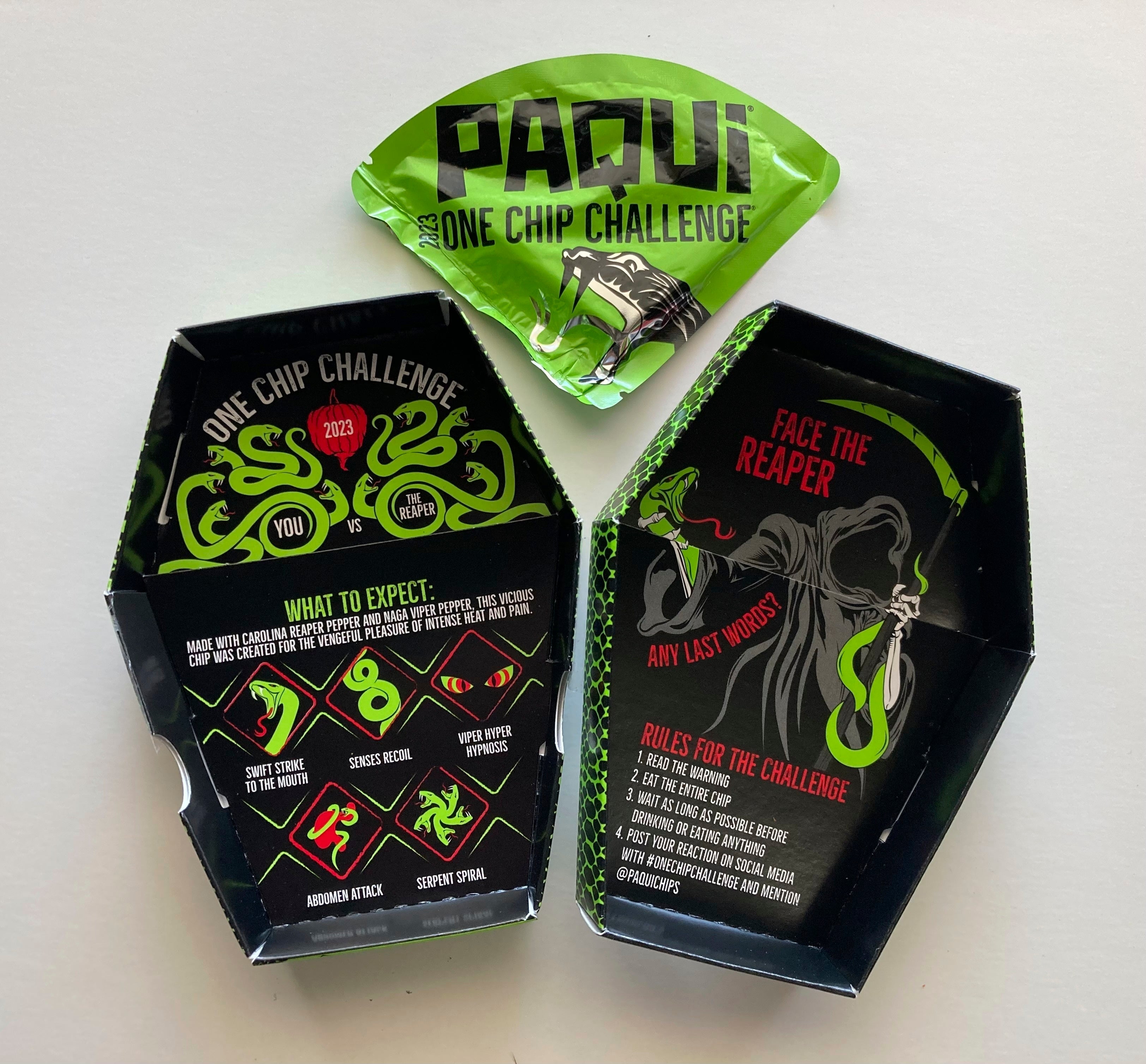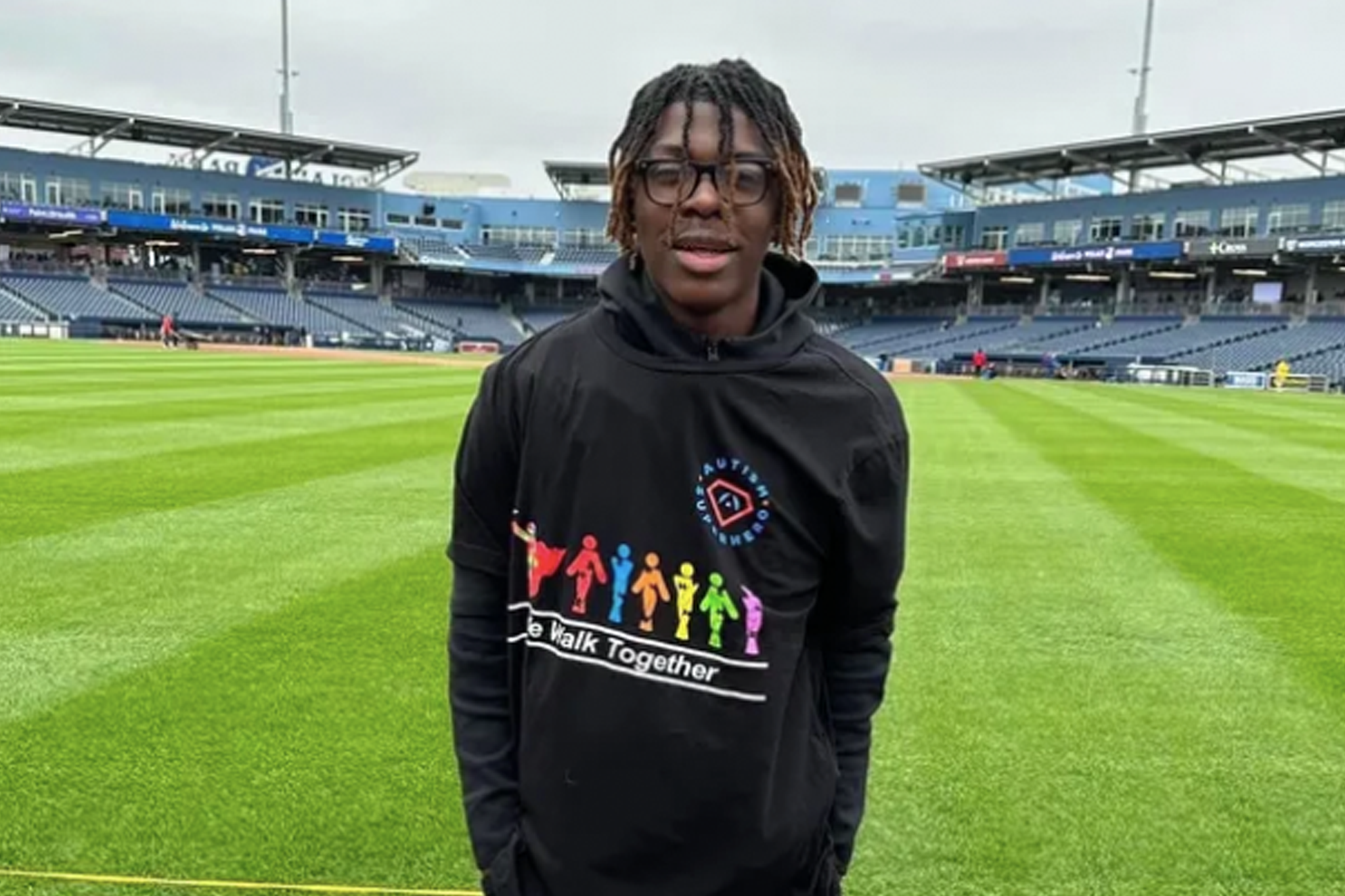Paqui rips One Chip Challenge from stores after teen’s death linked to TikTok craze
Harris Wolobah, 14, died on 1 September after participating in the One Chip Challenge

Your support helps us to tell the story
From reproductive rights to climate change to Big Tech, The Independent is on the ground when the story is developing. Whether it's investigating the financials of Elon Musk's pro-Trump PAC or producing our latest documentary, 'The A Word', which shines a light on the American women fighting for reproductive rights, we know how important it is to parse out the facts from the messaging.
At such a critical moment in US history, we need reporters on the ground. Your donation allows us to keep sending journalists to speak to both sides of the story.
The Independent is trusted by Americans across the entire political spectrum. And unlike many other quality news outlets, we choose not to lock Americans out of our reporting and analysis with paywalls. We believe quality journalism should be available to everyone, paid for by those who can afford it.
Your support makes all the difference.The maker of an extremely spicy tortilla chip is removing the product from stores after it was linked to the death of a teenager.
Texas-based manufacturer Paqui has asked retailers to stop selling the individually wrapped chips after Harris Wolobah, 14, died after trying to complete the company’s advertised “One Chip Challenge.”
Convenience store 7-Eleven has already stopped selling the chips in its stores, while online retailer Amazon removed a flaming-hot tortilla chip from sale in the UK.
The One Chip Challenge involves eating a spicy chip and waiting as long as possible before drinking or eating anything else for relief.
The challenge chip is only available in the US and Canada, and is still available to buy on Paqui’s website. The chip, which is said to be among the spiciest in the world, comes in a small, coffin-shaped package and sells for about $10.
The package warns the chip is made for the “vengeful pleasure of intense heat and pain,” is intended for adults and should be kept out of reach of children.
In a statement, the company said it is “actively working with retailers” to remove the product from shelves.
It comes after 14-year-old high school student Harris Wolobah died on 1 September after participating in the One Chip Challenge.
Harris’s family was reportedly informed by his school that he began to experience a stomach ache and fainted after eating the chip.
The teenager reportedly started feeling better at home that afternoon, then passed out just before he was supposed to leave for basketball practice. He was pronounced dead at a local hospital.
The official cause of Wolobah’s death has not been revealed and is under investigation by Massachusetts authorities, but his family called for the chips to be banned from store shelves.
Paqui, a subsidiary of The Hershey Company, said in a statement posted on its website Thursday that it was “deeply saddened by the death” of Wolobah.
“We have seen an increase in teens and other individuals not heeding these warnings,” the company said. “As a result, while the product continues to adhere to food safety standards, out of abundance of caution, we are actively working with retailers to remove the product from shelves.”

The company said the move is voluntary, and is not a recall.
A San Francisco family have also claimed their son was “poisoned” by the challenge after eating one of the chips at school and going into a near seizure-like state.
The chip contains Carolina Reaper pepper and Naga Viper pepper. A warning label posted underneath the “Buy Now” and “Find Near You” buttons on the company’s website advises people to avoid the chip if they are “sensitive to spicy foods, allergic to peppers, night shades or capsaicin, or are pregnant or have any medical condition”.
It also advises customers to wash their hands with soap after touching the chip. Paqui suggests that customers seek medical assistance if they experience difficulty breathing, nausea, or fainting after they eat the chip.
Experts have warned against taking part in the challenge. Keri Gans, a New York-based registered dietitian nutritionist, told The Independent: “Everyone’s an individual — what one person’s body can tolerate might be completely different from what another person’s body can tolerate. It’s not worth the chance.”
Ms Gans said that though spicy foods are often viewed as a challenge to power through, they can pose real risks to certain people. “Pain is never a positive sign of anything. You shouldn’t feel pain when you eat a food,” she said.
Meanwhile, urgent care provider Allan Capin MD said doing the One Chip Challenge “is like putting a bomb in your stomach if you’re not prepared for it.”
If you notice any severe symptoms after eating spicy foods, you should seek medical help immediately. However, if you’ve eaten something spicy and are experiencing more mild symptoms — like watery eyes or burning in your mouth — you should try eating bread or drinking lemonade or milk to relieve the symptoms.



Join our commenting forum
Join thought-provoking conversations, follow other Independent readers and see their replies
Comments